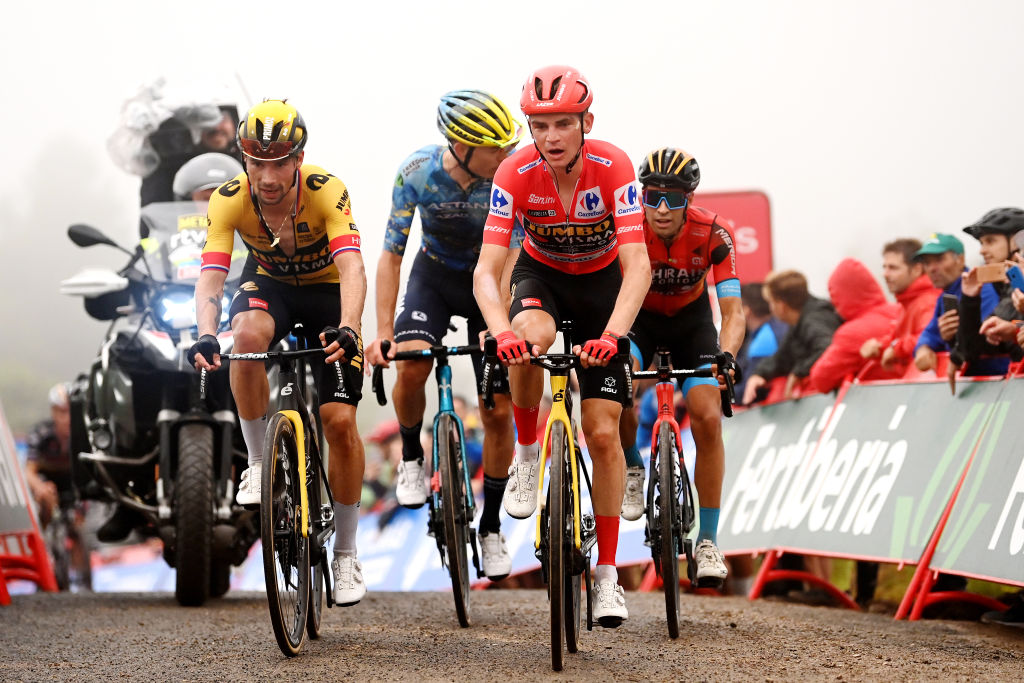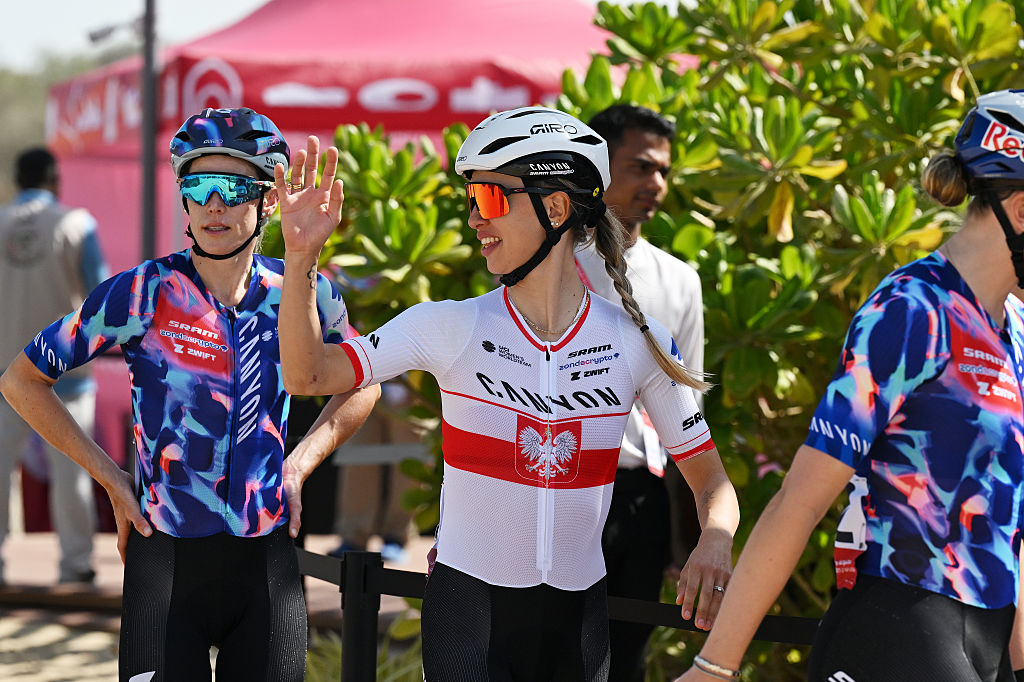Sepp Kuss: Vuelta a España stage 9 neutralisation was 'the right thing to do'
Race leader explains that early echelon attacks came from 'planning to be aggressive'

The latest race content, interviews, features, reviews and expert buying guides, direct to your inbox!
You are now subscribed
Your newsletter sign-up was successful
Sepp Kuss' first day as race leader at the Vuelta a España contained everything from multiple echelons to a mini-mud slick causing the final 2.05km of the stage to be neutralised, but the American came through unscathed and with his hold on with la roja intact.
Early mass attacks saw six of the Jumbo-Visma riders, including Kuss, co-leaders Primož Roglič and Jonas Vingegard, plus arch-rival Remco Evenepoel (Soudal-QuickStep), steal a march on all the other GC contenders in the opening kilometres.
The ultra-dangerous 12-rider move was the first of a series of three ultimately unsuccessful echelon bids, all inspired at least in part by Jumbo-Visma, that kept the peloton on their toes, but the abanicos were far from being the only surprise ingredient of stage 9.
For the second time in a week the effects of unexpectedly heavy rain, in this case mud pouring onto the road in the final corner, caused the Vuelta race organisers to neutralise GC times in the final 2.05km of the stage.
The amputation of the stage effectively created one opportunity less for a climber like Kuss to try to drop his rivals, but the American told reporters afterwards he thought it was the right decision.
"In my opinion, it was the right thing to do. We were skidding a lot on the corners and the tarmac wasn't that good," Kuss said.
"The stage was already hard enough and there was a lot of mud in the last 500 metres. If there had been a sprint between five or ten guys" – roughly the total of the front group – "then somebody would have fallen off."
The latest race content, interviews, features, reviews and expert buying guides, direct to your inbox!
The fraught first two-thirds of the stage and multiple echelon attacks started almost as soon as the bunch had left the coastal town of Cartagena, with an ultra-alert Jumbo-Visma team ready and waiting to test their rivals.
"We had decided it would be better to be a bit more aggressive, especially with that wind at the start, we were up there coming out of the first town which was the first key point," Kuss explained.
"We first made a super-small echelon, then we kept rotating because it's always better to be in front than behind even if you do have to work. It's impressive, the way the guys were so attentive like that.
"It was super hard and it always regrouped, but it's always better to be in front than behind. We always had really good numbers in the group, but it was not an easy day for everybody."
Kuss has now reached the first rest day of the Vuelta still in red and he'll tackle Tuesday's 25.8km individual time trial with a 2:24 advantage over closest major GC rival, world time trial champion Evenepoel, who lies fourth overall.
"I am pretty relaxed about it. I will give it my best, that is all I can do. I just have to be relaxed and confident. So far I feel good, so we will see in the time trial," Kuss said.
After the Vuelta peloton flies north on Sunday evening race leader Kuss and the rest of the field will enjoy their first rest day on Monday in Valladolid.
"I'll check out the course and test myself on the time trial bike, but this year I've discovered I do better TTs when I don't train much on it," Kuss said. "So I'll try to take the rest day as calmly as I can."
Alasdair Fotheringham has been reporting on cycling since 1991. He has covered every Tour de France since 1992 bar one, as well as numerous other bike races of all shapes and sizes, ranging from the Olympic Games in 2008 to the now sadly defunct Subida a Urkiola hill climb in Spain. As well as working for Cyclingnews, he has also written for The Independent, The Guardian, ProCycling, The Express and Reuters.

